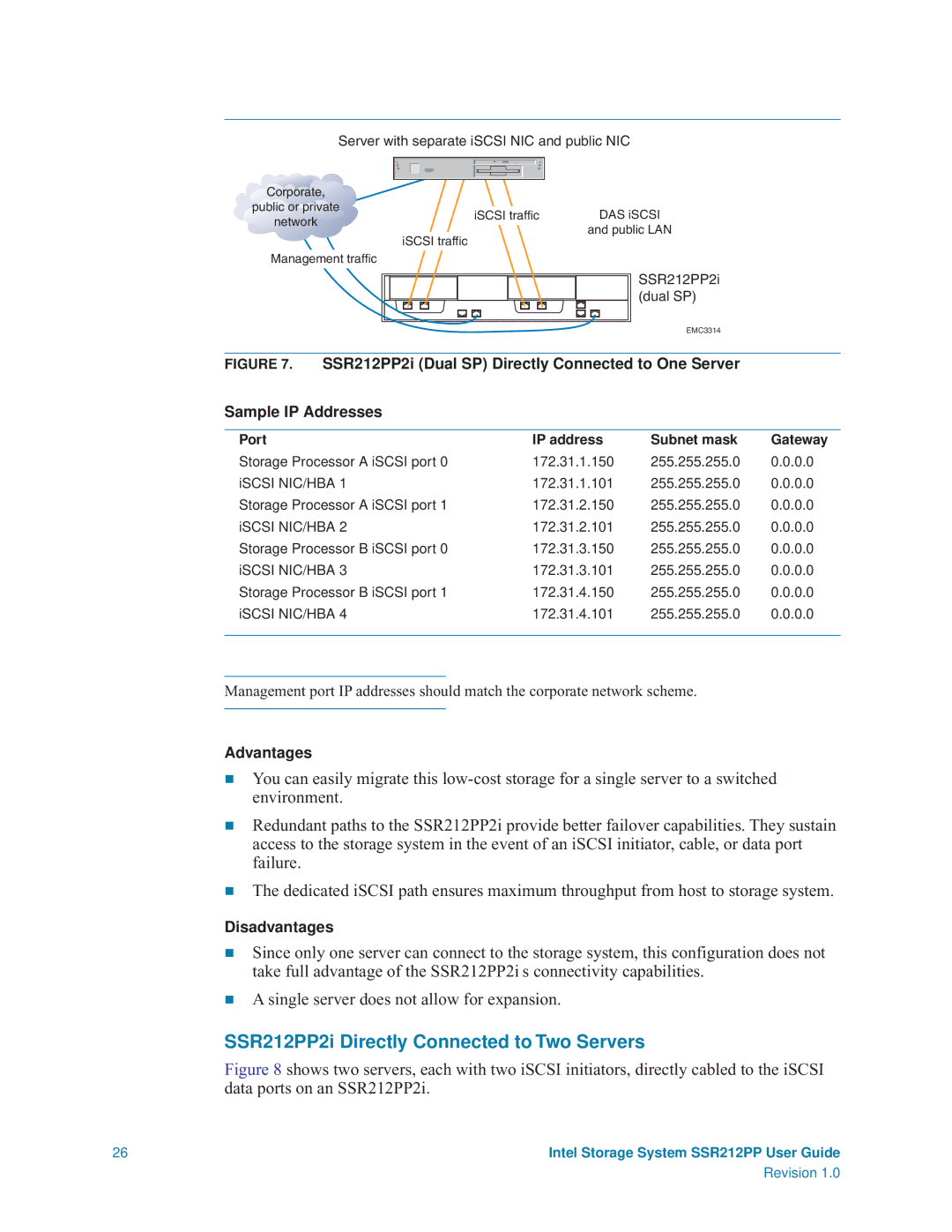
Server with separate iSCSI NIC and public NIC
Corporate, |
|
|
|
| ||
public or private |
|
|
| DAS iSCSI | ||
| iSCSI traffic | |||||
network |
| |||||
|
|
| and public LAN | |||
|
|
| ||||
|
|
|
|
|
| |
|
|
| iSCSI traffic |
| ||
|
|
|
|
| ||
|
|
|
|
|
|
|
Ma | nagement traff | ic |
|
|
|
|
|
|
|
| |||
|
|
|
|
|
|
|
SSR212PP2i
(dual SP)
EMC3314
FIGURE 7. SSR212PP2i (Dual SP) Directly Connected to One Server
Sample IP Addresses
Port | IP address | Subnet mask | Gateway |
Storage Processor A iSCSI port 0 | 172.31.1.150 | 255.255.255.0 | 0.0.0.0 |
iSCSI NIC/HBA 1 | 172.31.1.101 | 255.255.255.0 | 0.0.0.0 |
Storage Processor A iSCSI port 1 | 172.31.2.150 | 255.255.255.0 | 0.0.0.0 |
iSCSI NIC/HBA 2 | 172.31.2.101 | 255.255.255.0 | 0.0.0.0 |
Storage Processor B iSCSI port 0 | 172.31.3.150 | 255.255.255.0 | 0.0.0.0 |
iSCSI NIC/HBA 3 | 172.31.3.101 | 255.255.255.0 | 0.0.0.0 |
Storage Processor B iSCSI port 1 | 172.31.4.150 | 255.255.255.0 | 0.0.0.0 |
iSCSI NIC/HBA 4 | 172.31.4.101 | 255.255.255.0 | 0.0.0.0 |
|
|
|
|
Management port IP addresses should match the corporate network scheme.
Advantages
You can easily migrate this
Redundant paths to the SSR212PP2i provide better failover capabilities. They sustain access to the storage system in the event of an iSCSI initiator, cable, or data port failure.
The dedicated iSCSI path ensures maximum throughput from host to storage system.
Disadvantages
Since only one server can connect to the storage system, this configuration does not take full advantage of the SSR212PP2i s connectivity capabilities.
A single server does not allow for expansion.
SSR212PP2i Directly Connected to Two Servers
Figure 8 shows two servers, each with two iSCSI initiators, directly cabled to the iSCSI data ports on an SSR212PP2i.
26 | Intel Storage System SSR212PP User Guide |
| Revision 1.0 |
